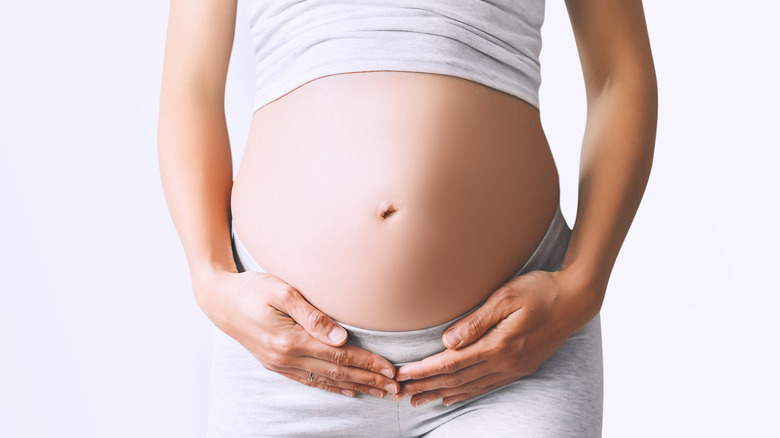What Is Perinatal Depression And How Did It Affect Britney Spears' Prior Pregnancies?
In an Instagram post made Monday, April 11, pop icon Britney Spears revealed to her friends and followers that she and her husband Sam Asghari are expecting. Pregnant with her third child, Spears opened up about the difficulties she faced during her previous pregnancies, writing, " ... when I was pregnant I had perinatal depression ... I have to say it is absolutely horrible ... women didn't talk about it back then ... some people considered it dangerous if a woman complained like that with a baby inside her ... but now women talk about it everyday (sic) ... thank Jesus we don't have to keep that pain a reserved proper secret."
While postpartum depression is a more widely-known condition, perinatal depression may be lesser known amongst the public. Experienced during pregnancy and/or for 1 year after childbirth, the Cleveland Clinic Journal of Medicine cites that "Perinatal depression affects 10% to 20% of women in the United States during pregnancy, the postpartum period, or both." For this pregnancy, Britney Spears shares that she has plans in place to help support her mental health.
Symptoms and treatment of perinatal depression
According to the National Institute of Mental Health, common symptoms related to perinatal depression include, but are not limited to, persistent feelings of emptiness, sadness, or anxiety, irritability, guilt, loss of energy, loss of interest in activities, difficulties with appetite and sleep, and in more severe cases, thoughts of harming oneself or the baby. While a condition known as "the baby blues" is not uncommon to experience for a period of up to 10 days following delivery, perinatal depression is characterized by symptoms experienced for 14 days or more that impact one's ability to function (via Cleveland Clinic Journal of Medicine).
If left untreated, perinatal depression can increase one's risk for preterm birth, preeclampsia, low birth weight, and self-harming behaviors. Early detection through screening tools can aid in treating the condition. Psychotherapy, support groups, telehealth check-ins, and home visits have proven effective (via Cleveland Clinic Journal of Medicine). Some research indicates that yoga may be an effective means of relieving symptoms during pregnancy (via Journal of Holistic Nursing). Concluding her Instagram post, Britney Spears shared that her plans for this pregnancy will include engaging in yoga on a daily basis.
If you or someone you know is struggling with mental health, please contact the Crisis Text Line by texting HOME to 741741, call the National Alliance on Mental Illness helpline at 1-800-950-NAMI (6264), or visit the National Institute of Mental Health website.


